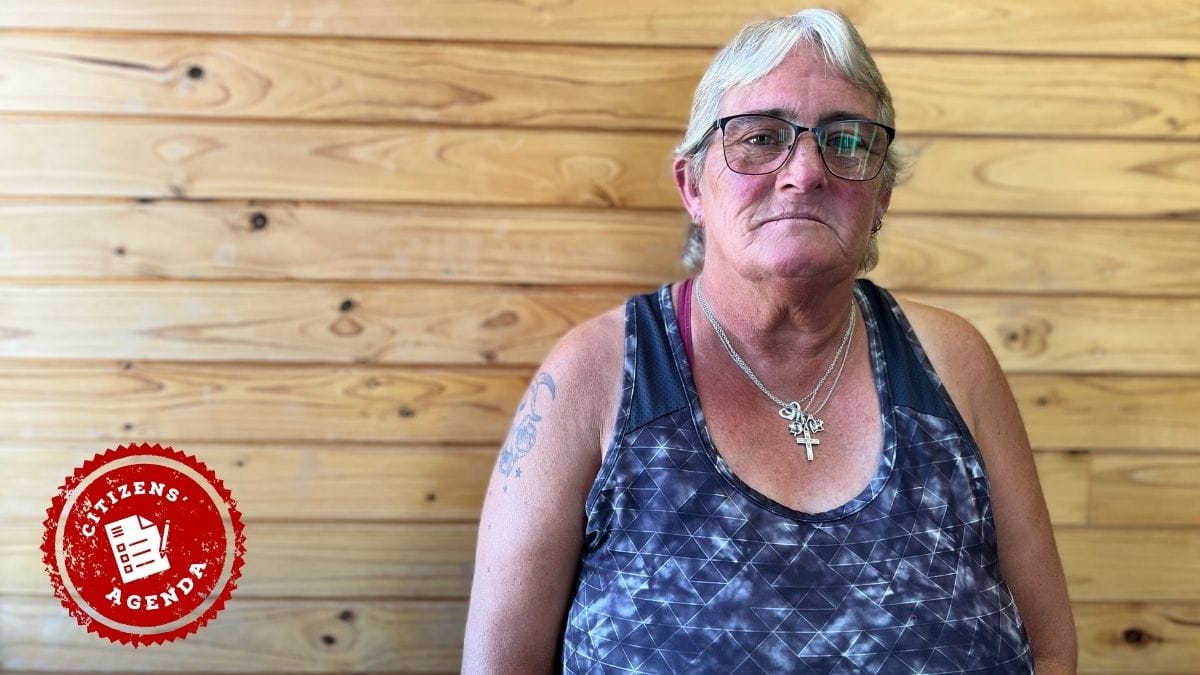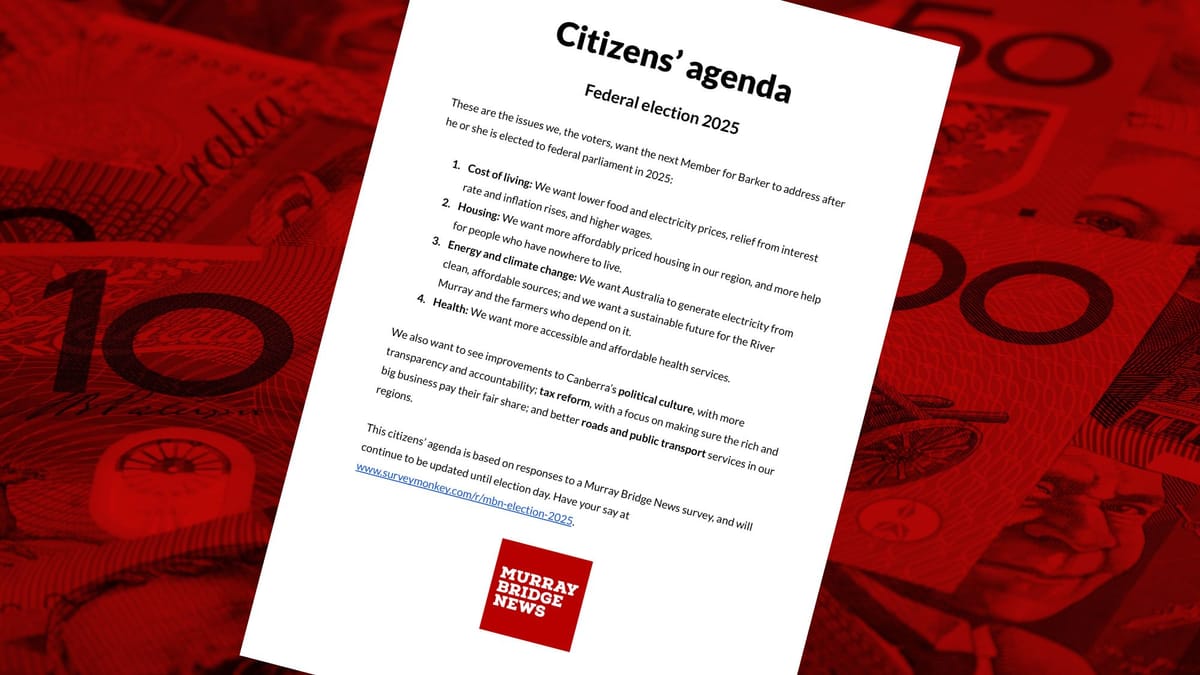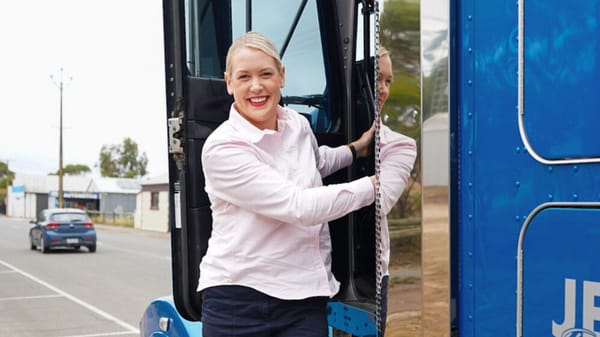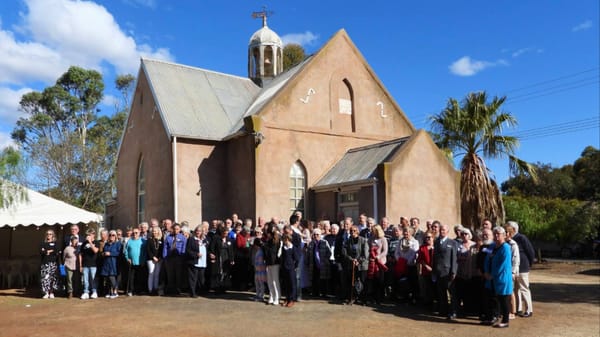Citizens’ agenda: Barker residents need cost of living relief
We ask the candidates for Barker at the 2025 federal election how they would solve regional South Australia's cost of living crisis.

This post about the upcoming federal election is free to read. Help Murray Bridge News tell more local stories by subscribing.
It's becoming harder to make ends meet each week for Debbie Dunne, a long term resident of Murray Bridge.
With rent, electricity, food and fuel prices continuing to rise, she's not the only one worried, cost of living was the top priority for citizens in our recent survey.
"I'm scared to go shopping, I just have to buy the bare essentials that I need," Ms Dunne said.
Recently she's been shopping at stores like Aldi and Silly Sollys which offer products at a lower price.
"I hardly ever have much money left over for food... after paying rent and other bills," she said.
At the beginning of the year she also saw an increase in her rental price.
"They need to put a block or a lock on landlords and real estate agents just going over the top."
"I'm worried about what's going to happen next year, if they put the price up again because I'm already struggling.
"I want the government to stick to their promises."
They make plenty of promises to get votes and then you don't hear about them once they get it, she said.
"We need somebody that's gonna make these promises and they're gonna stick to them and they're gonna work their butt off."

Cost of living was a top priority for many of the Murray Bridge residents voicing the same concerns as Ms Dunne in Murray Bridge News’ citizens’ agenda survey.
"Cost of living is seriously getting out of control, we had $2.20 left in our bank
this week," one respondent said.
"We haven't been grocery shopping in three weeks because we can't afford to pay our mortgage and do big shops," they added.
Another said we need cheaper bills and groceries; "It’s getting harder to budget for these and other bills, plus save money for other things such as repairs, large bills and other emergencies."
"The issue is skyrocketing, there's no end in sight," another respondent said.
We put the question to the candidates for Barker.
If elected, how would you lower food and electricity prices, offer relief from interest rate and inflation rises, and increase wages?

Tony Pasin (Liberal)
Despite inheriting a strong economy from the Coalition, with unemployment and interest rates at historic lows, Labor has damaged the Australian economy in just three years and Australians are suffering from the worst cost of living crisis in a generation.
Wasteful government spending has increased inflation, and unnecessary red tape and higher taxes have stifled growth.
The reason interest rates have gone up is because Labor can’t control its spending – and because of its reckless energy policy.
An elected Coalition Government will build a stronger economy by delivering a back-to-basics economic agenda, including lower, simpler and fairer taxes to boost economic growth.
We will deliver lower inflation by cutting wasteful spending and reducing red tape.
We will back the private sector to create more jobs and deliver sustainable real wage increases.
And we will deliver cheaper energy through our balanced energy plan, including renewables, gas and zero-emissions nuclear.

Ian Penno (independent)
The cost of food is directly related to not only electricity but all energy, and wages.
Food costs incorporate the expensive management of complex Industrial Relations Regulations and red/green tape.
It requires:
- Common-sense and practical regulation review
- Increase competition
- Reduce shop lifting
Electricity costs can be stabilised and potentially reduced by using our extensive gas resources and creating new water equates to hydro energy and water reserves.
Nuclear and green energy costs, along with their environmental and human impact, need further evaluation. Green has expensive build/recycling issues, United Nations nuclear rating is better than green energy.
Wage increases have a direct link to food and services cost, creating inflation and higher interest rates. Tax creep minimises increased wage impact. Interest rates are created by government’s fiscal management. The RBA alone sets interest rates. Mismanagement equals high rates, handouts for mismanagement is an inflationary driver.

Cody Scholes (independent)
I would focus the governments attention on coal, gas and nuclear, as I believe the rise in power prices stems from an unreasonable race to renewable energy.
This includes dropping out of the Paris Climate Agreement and other international organisations that threaten our sovereignty.
I’d lower power prices by dropping tax-payer funded renewable energy subsidies.
I’d reward and encourage our growers and producers (by cutting red tape) which will lower the cost of dairy, eggs, meat, grains, fruit, veggies and meat.
Interest rates and inflation can be better managed if Australia becomes more self reliant in manufacturing and industry.
Relying on unpredictable global markets makes us vulnerable to global events such as wars and pandemics (evidently), and this effects our markets and economy.
Australians deserve to get ahead by having government invest in our people, our industries.
Spend less overseas and, tax us less -giving us more disposable income.

Jonathan Pietzsch (Nationals)
Underlying increased electricity prices, inflation, interest rates and food prices (through transport and processing components) is the rising cost of energy resources.
The Nationals support a mix of energy resources as being the best way forward and we were first to the table in supporting nuclear energy as part of a long term solution.
We need to get the price of energy down with reliable baseload power generation and renewables located where they are appropriate and don’t affect farming.
In the short term increased domestic use of gas is part of that answer, in the long term, nuclear energy.
If elected I will continue to push for outcomes that drive down energy prices and increase energy supply.
Nuclear energy has the potential to be that long term game changer that will decentralise the grid, provide energy security and create more opportunities for our children.






